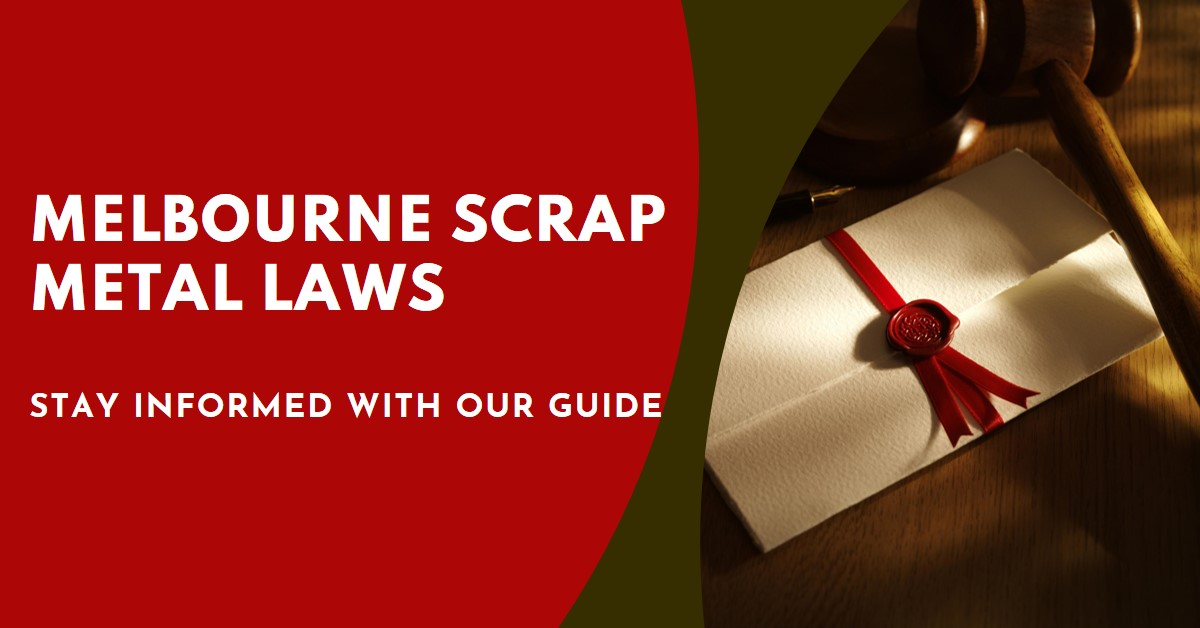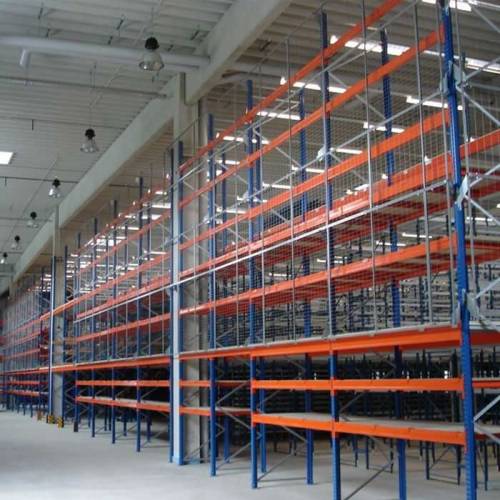Scrap Metal Laws and Regulations in Melbourne

For Melbourne residents looking to recycle scrap metal, understanding the laws and regulations surrounding scrap metal recycling is crucial. Australia takes environmental sustainability seriously, and recycling is a big part of that. However, there are rules that ensure the process is safe, legal, and eco-friendly. This post will provide a clear guide to help you navigate the legal landscape of scrap metal disposal and recycling in Melbourne.
Licensing Requirements for Scrap Metal Dealers
In Australia, scrap metal dealers must be licensed. This ensures that businesses operating in the industry are trustworthy and comply with legal standards. If you are selling scrap metal, especially in large quantities, it is important to deal with a licensed recycler. Licensed dealers are more likely to follow ethical and legal practices when handling scrap.
In Victoria, where Melbourne is located, the Second-Hand Dealers and Pawnbrokers Act 1989 requires anyone who buys or sells second-hand goods, including scrap metal, to be registered with the Business Licensing Authority (BLA). This law helps regulate the industry and ensures fair transactions.
Proof of Identity for Transactions
One of the key regulations when selling metal scrap in Melbourne is that you must provide proof of identity. This law was introduced to combat the growing problem of metal theft. Metal items like copper wire, aluminum, and steel are often stolen from construction sites and public properties. To prevent this, scrap yards and recyclers are required to record the details of sellers, including their name, address, and a valid ID, such as a driver’s license or passport.
In some cases, dealers may also ask for additional information, such as proof of ownership of the metal being sold. This helps ensure that stolen metal does not enter the recycling system.
Cashless Transactions for Scrap Metal Sales
In Melbourne, as part of efforts to curb illegal activities related to scrap metal, all transactions must be cashless. This regulation means that scrap metal recyclers are not allowed to pay cash for scrap metal. Instead, they must use electronic payment methods such as direct bank transfers or checks.
This rule came into effect to prevent the use of scrap metal as a quick way to obtain cash from illegal sources. By ensuring a clear paper trail, authorities can trace transactions more easily and minimize crime.
Electronic Waste (E-Waste) Disposal Rules
In 2019, Victoria banned e-waste from being dumped in landfills. E-waste includes items like old computers, televisions, and mobile phones, many of which contain valuable metals like copper, aluminum, and gold. However, they also contain hazardous materials that can be harmful to the environment if not handled properly.
If you’re recycling electronic scrap metal in Melbourne, it’s important to take these items to an authorized e-waste recycler. These facilities are equipped to safely handle and recycle the metals, as well as dispose of hazardous components in an environmentally friendly way.
Victoria’s e-waste ban has led to a rise in specialized e-waste recycling centers, making it easier for residents to dispose of their old electronics responsibly.
Recycling Hazardous Metals
Some metals can pose a serious threat to the environment and public health if not disposed of correctly. For example, lead, mercury, and asbestos-containing materials are often found in old building materials or electrical equipment. In Australia, strict rules govern the disposal of hazardous waste to prevent environmental contamination.
If you have scrap metal that may be hazardous, it’s important to follow the proper disposal procedures. This might involve using a licensed hazardous waste recycler or contacting your local council for advice on how to safely dispose of these materials.
Melbourne residents can find more information on safe disposal of hazardous materials by visiting the EPA Victoria website or contacting local recycling centers.
Selling and Recycling Car Bodies
Recycling old vehicles is another common form of metal scrap recycling. However, there are specific laws that govern how car bodies and parts can be sold for scrap. When scrapping a vehicle, you’ll need to provide proof of ownership to ensure that the car is not stolen. Recyclers will also check the vehicle’s registration status to ensure it’s legally scrap-worthy.
In some cases, scrap dealers may require you to remove fluids (like oil or coolant) before they accept the vehicle for recycling. Melbourne has a number of specialized car recyclers who can help you with this process.
Illegal Dumping of Scrap Metal
Illegal dumping of scrap metal is a serious issue in Australia, and it’s strictly prohibited. Dumping old metal items in unauthorized locations can lead to hefty fines. In Victoria, fines for illegal dumping can range from $500 to $6,000, depending on the size and nature of the offense. Repeat offenders may face even larger penalties.
To avoid fines, always take your scrap metal to an authorized recycling center. Melbourne has several scrap metal facilities that offer free drop-off for many types of metal waste.
Scrap Metal Theft and Reporting
Metal theft continues to be a problem in Australia, with items like copper wiring and aluminum often stolen from construction sites, railroads, and public utilities. In response, strict regulations have been put in place to reduce the likelihood of stolen metal being sold to scrap yards.
If you suspect someone is attempting to sell stolen scrap metal, it’s important to report it. Melbourne residents can report suspected metal theft to Crime Stoppers Victoria, which works closely with law enforcement to address this issue.
Recycling Metal for Environmental Impact
While following the rules, it’s also essential to remember the environmental impact of metal scrap recycling. Recycling metal saves 95% of the energy needed to produce new metal from raw materials. This significantly reduces carbon emissions and helps combat climate change. By following the regulations and ensuring proper disposal, Melbourne residents can contribute to both a cleaner city and a healthier planet.
Conclusion
Understanding the laws and regulations surrounding scrap metal recycling in Melbourne is crucial for ensuring safe and legal practices. From proof of identity requirements to cashless transactions, Melbourne residents must follow specific rules when selling scrap metal. Additionally, laws surrounding e-waste and hazardous metal disposal ensure that the environment is protected. By following these guidelines, you can recycle responsibly, stay within the law, and maximize the value of your scrap metal.
Also read: Protect Your Car’s Shine: Glass Coating for Cars Price and Benefits







